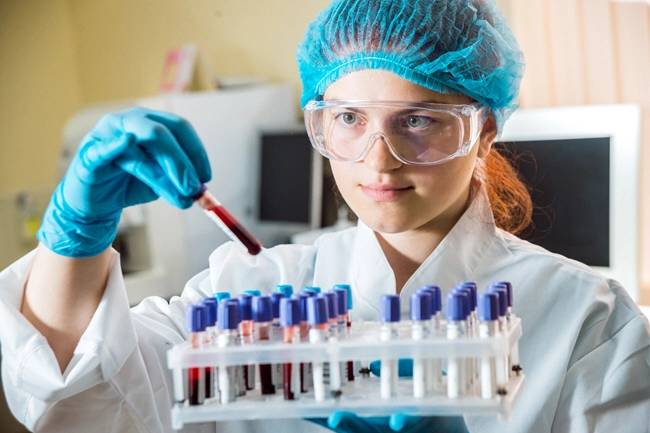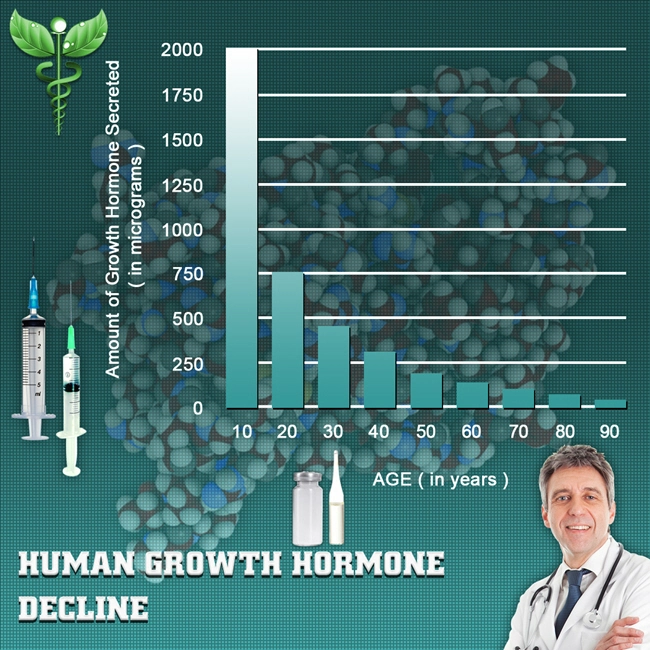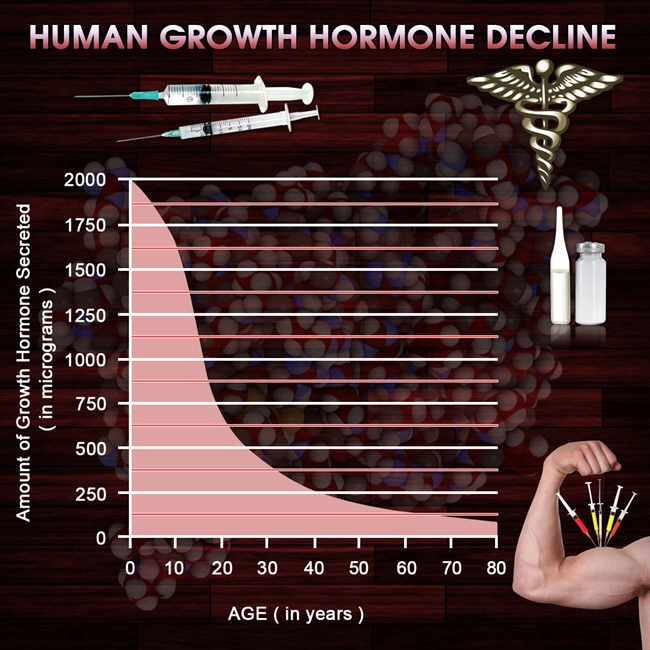
Video Link: https://vimeo.com/296963207
Video Download: Click Here To Download Video
Video Stream: Click Here To Stream Video
Video Link: https://vimeo.com/296965209
Video Download: Click Here To Download Video
Video Stream: Click Here To Stream Video
Video Link: https://vimeo.com/296968444
Video Download: Click Here To Download Video
Video Stream: Click Here To Stream Video
Video Link: https://vimeo.com/296969620
Video Download: Click Here To Download Video
Video Stream: Click Here To Stream Video
An Introduction to Human Growth Hormone – HGH Wiki Guide
Growth Hormone. Unless you've been living in a cave, you have probably heard about it. We see HGH mentioned on TV news and read about it in all the prominent newspapers and magazines, and on the Internet.
Athletes and famous Hollywood actors are using Human Growth Hormone (HGH) for everything from sports enhancement and anti-aging, trying to turn back the clock, or only to look and feel younger inside and out.
 Sylvester Stallone, aka “Rocky” and “Rambo” was busted in Australia with HGH and allegedly "misplaced" his doctor's prescription. He was arrested and had to pay a $2,000 fine.
Sylvester Stallone, aka “Rocky” and “Rambo” was busted in Australia with HGH and allegedly "misplaced" his doctor's prescription. He was arrested and had to pay a $2,000 fine.
Stallone, who is in his 60's, has the energy and vitality of a 35-year-old athlete. He credits this to a significant part of his workout routine, a long with his use of HGH. Mr. Stallone feels that in 10 years (or less) HGH will become an over-the-counter product.
When the smoke of controversy clears, and Congress looks closer at the thousands of research studies on HGH, Stallone's statements might prove correct. Until then, a doctor's prescription is required to obtain HGH legally.
Since the "winning is everything," attitude prevails in both professional and amateur sports, HGH is being used by many prominent professional and Olympic athletes in just about every sport for significantly increased performance capabilities (yes, even "brain sports", such as chess and poker), in the hope of gaining an “edge” over competitors.
The use of HGH for this purpose is banned by virtually all sporting sanctioning bodies.
This has created confusion in many people's minds. When asked, most people feel that the use of HGH is illegal under any circumstance. However, it is not unlawful when administered by a medical professional. Many older folks undergo HGH treatment to combat the debilitating effects of aging.
The two most massive search engines, Google and Yahoo, which control about 90% of total internet searches, show the terms HGH or Human Growth Hormone are searched more than 20,000 times per day online!
As a result of the explosive popularity of HGH being used for more than treating growth hormone deficiency in children, Congress, and the FDA are holding hearings and creating even more controversy over this very misunderstood, fantastic substance.
What is Human Growth Hormone (HGH)?
"What is HGH?" is becoming a very popular question, since almost every other day HGH is mentioned in the media regarding its use by athletes, or breaking research emerges concerning the benefits of its use.
Human Growth Hormone is created in the base and center of the brain, more specifically, in the rear portion of the anterior lobe of the Pituitary Gland. The Pituitary Gland has two primary lobes, the anterior or front lobe, and the posterior or back lobe. HGH is made in the back of the front lobe of the Pituitary Gland.
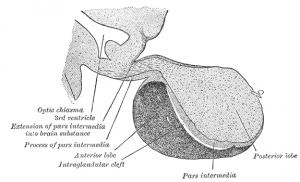
HGH is a delicate, unique, and vital hormone protein, which is responsible for the growth, development, and regeneration of healthy cells throughout the entire body.
Left Side View of the Center Brain Region
With its vital role in growth, development, and function, HGH is considered by many medical experts in the field of anti-aging, longevity, and cell regeneration to be the master hormone.
What is a hormone?
A hormone (from the Greek "impetus" or a moving force; impulse; stimulus) is a chemical messenger that carries a signal from one cell (or group of cells) to another, via the blood.
In general, hormones regulate the function of their target cells - the cells receiving the hormone. The action or 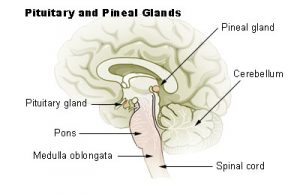 net effect of hormones is determined by the response of the receiving cells.
net effect of hormones is determined by the response of the receiving cells.
What does Human Growth Hormone look like?
HGH is a protein hormone made up of a chain of 191 amino acids, also known as a polypeptide (poly is Latin meaning 'many'...many peptides...many amino acids), which form a circular shape.
HGH is created and secreted into the blood stream by the anterior (back part) lobe of the Pituitary Gland (which looks like a garbanzo bean) at the central base of the brain.
More specifically, in the rear portion of the Pituitary Gland, there is a kind of stack of cells called Somatotropes, which make up about 40 to 50% of the anterior (back) of the Pituitary Gland. These cells act as a factory, pumping out this life-sustaining HGH protein. Here is a detailed look:
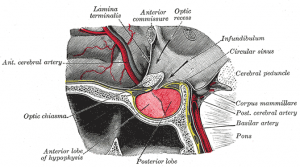
The Human Growth Hormone On/Off Switch
There seem to be two or more factors regulating the release, decrease and cease, of HGH. The Hypothalamus in the bottom (base) back of the brain, metaphorically acts as the on/off switch of HGH production.
Research on how to Stop HGH Production Permanently
In a research study by scientist S. Reichlin and his colleagues, the connection from the Hypothalamus gland to the Pituitary Gland was cut off (sectioned off). This action caused the pituitary to stop producing healthy levels of HGH.
This development showed that the Hypothalamus, which produces the Growth Hormone Releasing Hormone (GH-RH), is the dominant source of stimulating the Pituitary Gland to produce HGH. There is a significant body of research about Sermorelin Injections regarding using the hormone: Growth Hormone Releasing Hormone (Tesamorelin).
The HGH On Switch
The Hypothalamus plays a significant role in HGH production and produces GH-RH (also see Sermorelin), the precursor to stimulate HGH production in the Pituitary Gland. In other words, the Hypothalamus uses GHRH (growth hormone-releasing hormone) to metaphorically tell the Pituitary Gland HGH "Factory," to kick-start the HGH assembly line production.
The HGH Off Switch
These are somatostatins (the OFF switch or simply HGH "Blockers") also known as growth hormone–inhibiting hormone (GHIH), that shut down or decrease HGH production in the Pituitary Gland.
The frequency of HGH release
HGH is primarily released in pulses that take place during the beginning phases of sleep, with the highest release at the latest stages of sleep. This is why it is so important to get a minimum of eight hours of deep, restful sleep.
People who do not get proper sleep have shorter life spans and sometimes suffer from HGH deficiencies. During the 24-hour cycle of the day, HGH is released in smaller pulses, about 30 in total.
When HGH is secreted by the Pituitary Gland, it is absorbed by the liver, where it is converted into growth factors, the most important one being IGF-1. Growth hormone is rapidly converted in the liver, to a potent growth-promoting metabolite, an insulin-like growth factor: (IGF-1, also referred to as Somatomedin C).
IGF-1 Insulin-like Growth Factor One
IGF-1 causes most of the effects associated with HGH. It is measured in the blood to determine the level of growth hormone secretion. Most of the benefits of 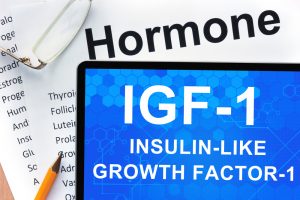 HGH are directly attributable to its stimulation of IGF-1.
HGH are directly attributable to its stimulation of IGF-1.
These growth factors are the messengers that carry the messages to the telling them when to live and when to die. Cell reproduction slows with aging unless the cells are prompted by the growth factors of HGH. Therefore, it could be said that HGH is the precursor of IGF
Human Growth Hormone Replacement Therapy
Sermorelin is a secretagogue for HGH production, i.e., the substance that tells your Pituitary Gland to increase HGH production: GH-RH (growth hormone-releasing hormone) which comes from the hypothalamus.
Sermorelin is a polypeptide chain that mimics the effects of GH-RH (the substances that tell your Pituitary Gland to increase HGH production. Sermorelin therapy is delivered through subcutaneous Injection.
Growth hormone deficiency in adults occurs when there is a production decline in HGH. This results in a resulting deficiency in growth hormone and IGF-1 levels in the bloodstream.
Growth hormone deficiency includes a spectrum that ranges from a complete lack of growth hormone to varying degrees of partial growth hormone deficiency.
Most people after the age of 25 to 30, begin a process of HGH deficiency, which accelerates at a loss rate of 1% to 2% per year, depending on one's genetic makeup, diet, exercise, and lifestyle.
In contrast to supplementing growth hormone deficiency through injections of exogenous recombinant HGH, another therapy, GH-RH, involves the use of GH-RH doses which cause and therefore, naturally produce its growth hormone to supplement the deficiency as a result of GH-RH Therapy.
Sermorelin is the acetate salt of an amidated synthetic amino acid polypeptide, consisting of the first 29 of 44 amino acids of naturally occurring Human Growth Hormone Releasing Hormone (GH-RH) in the body.
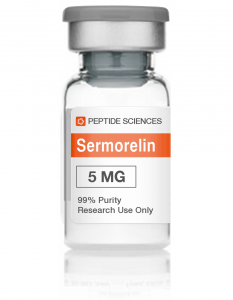 Sermorelin Acetate is the last of the hypothalamic-releasing hormones (stimulates HGH) to be identified and defined and represents the briefest piece of GH-RH known to feature the full biological activity of the parent hormone referred to as the HGH-releasing hormone (GH-RH) growth hormone-releasing hormone.
Sermorelin Acetate is the last of the hypothalamic-releasing hormones (stimulates HGH) to be identified and defined and represents the briefest piece of GH-RH known to feature the full biological activity of the parent hormone referred to as the HGH-releasing hormone (GH-RH) growth hormone-releasing hormone.
Instead of increasing growth hormone levels by the injection of bio-synthetic or Bio-identical HGH, GH-RH injections increase plasma growth hormone concentrations in patients with idiopathic growth hormone deficiency.
This is accomplished by directly stimulating the Pituitary Gland to release natural HGH. Sermorelin acetate for injection is similar to natural GH-RH in its ability to boost HGH secretions in humans.
GH-RH for injection has been useful in the treatment of growth hormone deficiency in children.
Our clinic anticipates that GH-RH will also be useful in the treatment of adult growth hormone deficiency because it has been useful in the treatment of children, and because HGH has already proven itself effective in cases of adult growth hormone deficiency.
The GH-RH used by our clinic has been studied for 12 years in more than 70 clinical trials, in over 2,600 child patients, totaling more than 485 patient-years of treatment.
Growth hormone-releasing hormone for injection was approved for use in children with growth hormone deficiency (GHD), by the FDA in 1997, and became available to our clinic in 1998. It is an experimental clinical treatment with regards to adult patients who are prescribed about half the dose of a small child. Prior clinic approval is required to participate in the adult clinical trial program conducted by the clinic.
This therapy has excellent potential for adults who have a growth hormone deficiency, and seek to reverse the effects of aging or treat a medical disorder. A patient who is dissatisfied with the results obtained through GH-RH Therapy may elect to be treated after that with HGH replacement therapy, or vice-versa.
Human Growth Hormone Declines with Aging
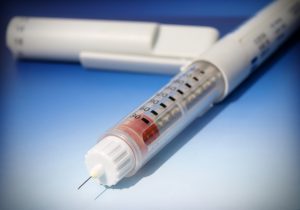
Remember those teenage years when you could stop at a fast-food drive-through, devour an obscene amount of cheeseburgers, fries, sodas, and milkshakes...yet wake up the next morning and still have abs?
Or how easy it was to get into shape for your favorite sport quickly? And how your energy levels were akin to a rumbling volcano? How could this be?
The answer is simple. During these years, growing bodies are experiencing an explosion of HGH. This miracle substance speeds up our metabolism, which allows us to burn fat and build muscle.
For many parents of teenage boys, the price of buying Junior a set of barbells is far more than its cost. Endless eating binges and constant trips to the clothing store for larger-sized clothes is a seemingly never-ending expense. But this spending is not never-ending. Here's why.
Decline
Mother Nature, in all her infinite wisdom, is usually great about giving us what we need, when we need it. Considering that for several thousands of years of human evolution the average lifespan was about 35; we only needed spurts of HGH through our twenties.
Therefore, as we enter our thirties, HGH begins to decline at approximately 10% per year. This can happen even faster for some folks, due to poor lifestyle choices. Check out the chart below:
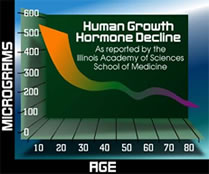
Regardless, the thing to remember is this: Mother Nature has not as of yet caught up to our recently extended life-spans. For example, entering the 20th century, the average male life expectancy was a mere 47 years!
This was, of course, due to a variety of factors (poor sanitation, lack of modern medical procedures, the risk of childbirth, ignorance of nutrition, etc.), and there have always been examples of individuals living exceptionally long lives.
However, we still carry the genetic patterns of eons of evolution. We are designed to reproduce in our teens or early twenties. By thirty, we have (according to this theory of evolution) fulfilled our mission, and do not need excess HGH.
The decline of growth hormone is directly associated with many of the symptoms of aging: cardiovascular disease, increased body fat, osteoporosis, wrinkling, gray hair, decreased energy, reduced sexual function and interest, and other premature aging symptoms.
Some medical research has revealed that the aging Pituitary somatotroph cells can still secrete as much growth hormone as the young somatotroph cells if they are correctly and adequately stimulated. As a result, some researchers have come up with several theories regarding aging resulting from HGH-related deficiency. Let's take a look at a few of them:
HGH "Blockers" (called Somatostatin) increase with age
Some research scientists believe the problem of HGH deficiency lies with somatostatin (HGH "blockers"), the natural inhibitor (blocker) of HGH. As we age, somatostatin may act to block the pituitary's release of HGH.
When researchers eliminated somatostatin production in old rats, they found growth hormone secretion as high as those of young rats. This might indicate, theoretically, that the Pituitary Gland has a life-long ability to produce any healthy level of HGH we might desire.
HGH Stimulators Decrease with Age
A second theory concerning the reduction of HGH as we age is that the precursor hormone, growth hormone-releasing hormone (GH-RH), which stimulates HGH release by the Pituitary Gland, becomes less sensitive to signals from the Hypothalamus.
Hence, insufficient GH-RH is released, resulting in a decrease in growth hormone secretions over time and age. See Sermorelin and the section on Growth Hormone Releasing Hormone.
A third theory concerning HGH decline or deficiency is this: not only does the growth hormone secreted and available to receptors in our cells decrease with aging, but that the cell receptors become more resistant and less responsive to the HGH. Under this theory, aging can be viewed as a disease of growth hormone resistance within our cell receptors, similar to the way in which diabetes is a disease of insulin resistance.
Regardless of the cause, loss of growth hormone is real, and the results are far from pretty. Therefore, many people have chosen HGH Replacement Therapy. Let's take a look at a few of the benefits possible with injectable HGH:
Here are some of the many benefits you will experience with HGH
- Blowtorch ugly, unhealthy fat. Growth hormone acts like “Pacman” on fat tissue
- Skyrocket your energy levels
- Reduce stress
- Strengthen your heart
- Improve your health and quality of life

- Experience deep, restorative sleep
- Improved self-confidence
- Stronger libido
- Develop laser-like mental focus
- Prevent or reduce the effects of illness
- Improve bone density. One study showed an increased bone mass of 2% per year
- Lower blood pressure
- Ramp up your metabolism
- Cause cold sweats and hot flashes to vanish...once and for all
- Return that youthful glow and suppleness to your skin. Growth hormone restores cellular fluid, which makes the skin thicker and causes wrinkles to become far less noticeable
- And more...much, much more...too numerous to list on one page
There is no other substance known to medical science that has such extensive and well-documented ability to deter and reverse the aging process as HGH. In reviewing the benefits of growth hormone therapy listed above, it was difficult to believe that HGH could have so many seemingly miraculous benefits. But the scientific evidence is there.
In fact, some studies have suggested HGH replacement therapy might extend the human lifespan 10 to 20 years, as long as a health-conscious lifestyle is included as a part of the doctor monitored HGH therapy program.
Obtain your HGH legally and safely
You may be tempted to “cut a few corners” and purchase HGH illegally, either by direct mail imports or from underground street dealers. Neither of these “shortcuts” requires a prescription.
Don't try either one of these methods
We understand why you're so eager to get going. HGH Replacement Therapy can work miracles...in an almost magic-like manner. From gaining muscle mass...watching your fat melt away...your skin regain its youthful glow...your aches and joint pains vanishing...and experiencing the exhilaration of feeling your libido come roaring back – It's all true! HGH can accomplish all of these astonishing “trips-back-in-time”...and much more.
This is why it's so essential to obtain HGH legally
There are three reasons why you should never consider getting HGH illegally. First, quality. There have been countless examples of mail-order imports of HGH that have not lived up to what was promised.
Typically, the first shipment is 100% pure. The blood tests of those receiving imported HGH show that their HGH levels are higher, thus prompting a reorder...often far larger than the first batch.
The problem? The second batch is water. That's right...WATER! Now, the blood tests show zero increase in HGH.
Worse, your credit card information is in the hands of those who have proven themselves to be dishonest. This may turn out to be a far more substantial problem than merely being ripped off by the placebo product.
Buying HGH from an underground street dealer at the gym is no better...and may be far worse. Do you really know what's in the so-called HGH? And, if complications arise, you have no legal recourse. It's not like you can pick up the phone and dial 911. Remember, you have broken the law, so now the law is not on your side.
 In fact, there was one report of a victim stating that when he confronted the dealer who sold him a worthless HGH placebo, the dealer pulled out his cell phone, pretended to offer it to the victim, and mockingly asked: “Who you gonna call...Ghostbusters?” Enough said. Keep it legal.
In fact, there was one report of a victim stating that when he confronted the dealer who sold him a worthless HGH placebo, the dealer pulled out his cell phone, pretended to offer it to the victim, and mockingly asked: “Who you gonna call...Ghostbusters?” Enough said. Keep it legal.
The second reason for obtaining HGH legally is that federal laws consider Human Growth Hormone a controlled substance.
This means that possession of HGH without a prescription could result in a substantial fine, probation, and even a possible jail sentence, not to mention a lifetime criminal record.
All of these unfortunate consequences can put a massive roadblock on your way to obtaining the benefits of growth hormone. Again, keep it legal. It's just not worth the risk.
The third reason for not obtaining HGH illegally is simple. It is so easy to get your supply of HGH legally. Just contact us, and get started the right way.
So, the decision is entirely in your hands. If you are willing to risk your health by buying HGH illegally, with god-knows-what in the ingredients...if you are willing to risk throwing away your hard-earned money...if you are willing to risk fines, probation, prison, and a criminal record...then go ahead. Buy HGH illegally. Good luck. You'll need it.
You are probably not looking for just a short-term fix to the problems of aging, or an unstable one. And that is precisely what buying HGH illegally can bring.
Fortunately, there is a second option: join our team. We have the training, experience, and professionalism to guide you on your path to the benefits of Injectable HGH. We do this safely, conveniently, and legally.
Don't risk your precious health...your hard-earned cash...and your good name and reputation. Stay off the dark path. Let HGH work its wonders in the right way.
Side Effects and Dangers of HGH Therapy
- Tenderness where the injection was made
- Increased cholesterol levels
 A feeling of stinging
A feeling of stinging
- Accelerate tumors and cancer cells.
- Digestive problems
- Inhibit other beneficial, necessary medications
- Carpel Tunnel Syndrome
- Surplus bloating caused by water retention
- Permanent expansion of joint size
- Lowered voice
- Fast skin growth, which creates coarser and thicker skin. Fortunately, this can be corrected when the HGH treatment ceases
- Arthritis
- Swelling
- Acromegaly
How we protect you from these possible complications
There are possible risks when undergoing HGH therapy. But fortunately, these side effects seldom occur, especially when you follow our dosage recommendations. We will also advise you on how to cycle your treatment.
Here is a detailed break down of how we handle any potential problems:
- Adverse effects are uncommon, and if they occur, we will tell you what to do
- The reason these side effects are rare is this: we are familiar with you as an individual, and design a program just for you – not a “cookie-cutter” approach, or a ”one-size-fits-all” treatment protocol
- We are cautious. Your treatment regime will begin slowly and be carefully measured. During your treatment, we will check your blood work on a regular basis. We will also interview you periodically about side effects
- Our goal is to fine-tune your dose to the exact amount to deliver the maximum benefits; no more, no less
- We only stock and administer clean, uncontaminated growth hormone
- We will inform you of every aspect of the protocol
In short, nothing will be confusing to you. Our mission is to deliver the benefits of HGH therapy to you safely and efficiently.
How and when to use HGH

The recommended dosage for Injectable Human Growth Hormone (HGH) Replacement Therapy is one International Unit (IU) daily, five days a week.
Many of our clients choose Monday through Friday as the days to take their injection....and take the weekend off. However, these days are not set in stone.
Depending on your personal circumstance, any two days during the week are acceptable for resting from their HGH treatments.
What is not negotiable is taking time off. The reason for this is simple. If HGH is taken daily, with no breaks, eventually you may run the risk of your body becoming acclimated to HGH. This could result in two adverse consequences. First, the HGH you are taking may become less effective. Our clients have seen the best results by cycling their treatment.
Second, even though our bodies produce far less HGH as we age, we still keep the ability to make our own, albeit in far fewer quantities. However, if we never give it a rest, our bodies may stop producing HGH entirely!
We need all of the HGH we can get, by replacement therapy and our pituitary secretion. The takeaway? Never, ever forget to take two days off each week...period.
As far as when to take your HGH injection, our clients have experienced the best result when taking their dose the first thing in the morning, immediately upon waking up. There is a logical reason for this.
Clinical studies have proven that our pituitary glands secrete the most HGH at night, while we are sleeping. If you were to inject your HGH treatment in the evening, you might interfere with your body's ability to produce its HGH. So, all other things being equal, morning is the best time for most clients.
However, there is an exception to the rule. If your natural levels of HGH are deficient, then it may not matter...or even be better to take your injection at night. Here's why:
If your body is making tiny amounts of HGH, it won't hurt you to take your dose at night. Not enough HGH is being secreted by the pituitary gland to make a difference. In fact, it may be more beneficial to take the injection in a way that is in tune with the circadian rhythm.
There is one more option: Distributed Distribution. This just means dividing up the dose twice a day. Clients are instructed to take two smaller amounts of  HGH, once in the morning and once in the evening. However, this is still somewhat experimental, and thus relatively rare.
HGH, once in the morning and once in the evening. However, this is still somewhat experimental, and thus relatively rare.
The good news? You won't have to decide. After carefully reviewing your physical condition, age, blood work, and current HGH levels, your anti-aging physician will be able to give you precise, clear-cut instructions as to when to take your HGH dose. We leave nothing to chance, and there is nothing complicated about it.
How to Obtain the Best Results using Injectable HGH:
To get the best results from an HGH replacement therapy program, incorporate a consistent health-conscious lifestyle.
Hormone Replacement Therapy and HGH Optimization
Due to the exciting new breakthroughs in anti-aging, life extension, disease prevention and treatment, and science-fiction-like medical technology, our era may be remembered as the stage just before the next gigantic explosion in potential human life-spans: human genetic engineering, which holds the promise of extending life spans almost indefinitely.
Therefore, HGH Hormone Replacement Therapy is becoming increasingly popular for middle-aged people.
The key is to slow down the progression of the disease of aging. This can allow us to experience dramatic improvements in the quality of our lives and act as a bridge to extend our lifespans long enough to enable us to partake in the miracle of human genetic engineering that is coming in the future.
Hormones: the vital but often overlooked piece of the aging puzzle
Along with the lifestyle changes we recommended earlier, balancing hormones is so important. Aging attacks and degrades our hormones. Restoring them to their youthful levels is critical to our anti-aging efforts.
Make sure your hormones are balanced. Have your hormone levels and blood work checked to know your "baseline values." If you are older than 30, this is doubly important.
Research has shown that utilizing testosterone, DHEA, HGH, pregnenolone, estrogen, progestogen, melatonin, and other hormones for those deficient and older than 30, can put the brakes on aging and may increase lifespan.
Human Genetic Engineering: the Next Stage of Anti-Aging Medicine?
 The Human Genome Project was a $3 billion sequencing project funded by the US government in 1990. Its goal was to identify, sequence, and label each rung in the genetic spiral staircase in the entire human genome: the human genetic equation.
The Human Genome Project was a $3 billion sequencing project funded by the US government in 1990. Its goal was to identify, sequence, and label each rung in the genetic spiral staircase in the entire human genome: the human genetic equation.
With that project completed in 2000, many profound discoveries have been made. It is now estimated that human genetic engineering and gene therapy will have their kinks worked out and become affordable and mainstream around the year 2035.
Human genetic engineering is going to change our lives so radically that it is almost impossible to predict the results. Even more fascinating, human genetic engineering will extend our lifespans long enough to reap the benefits of the next breakthrough, which keeps the cycle going.
Biotechnology, bioscience, bioengineering, and human genetic engineering could, in theory, result in near immortality.
This is not a fairytale or a pipe-dream. The promises that these sciences make may be closer to becoming a reality than anyone can imagine. Start planning to take advantage of them by making lifestyle changes now!
Contact us for a FREE, no-obligation discussion about the astonishing benefits of Growth Hormone Replacement Therapy!
References
Contact Us Today For A Free Consultation
Dear Patient,
Once you have completing the above contact form, for security purposes and confirmation, please confirm your information by calling us.
Please call now: 1-800-380-5339.
Welcoming You To Our Clinic, Professor Tom Henderson.

- New Research on Hormone Replacement Therapy [Last Updated On: December 29th, 2024] [Originally Added On: March 12th, 2021]
- LCN2 Hormone Suppresses Hunger and Stops Cravings! [Last Updated On: January 27th, 2025] [Originally Added On: April 7th, 2021]
- Melatonin: The Body's Master Clock [Last Updated On: December 27th, 2024] [Originally Added On: April 8th, 2021]
- The Importance of Luteinizing Hormone [Last Updated On: December 28th, 2024] [Originally Added On: April 11th, 2021]
- Andropause From The Wikipedia Encyclopedia [Last Updated On: December 29th, 2024] [Originally Added On: April 12th, 2021]
- Finally Explained: The Mysterious Pineal Gland [Last Updated On: December 28th, 2024] [Originally Added On: April 30th, 2021]
- Hormone Therapy May Help Cut Alzheimer's Risk [Last Updated On: November 24th, 2024] [Originally Added On: May 18th, 2021]
- Androgel : Men Getting Their Mojo Back! [Last Updated On: May 12th, 2025] [Originally Added On: May 21st, 2021]
- HGH Secretagogue [Last Updated On: November 24th, 2024] [Originally Added On: May 22nd, 2021]
- Hormone Replacement Therapy Safe, Study Suggests [Last Updated On: May 17th, 2025] [Originally Added On: May 24th, 2021]
- The HGH Recommended Medical Dosage - The Importance of Blood Work [Last Updated On: November 24th, 2024] [Originally Added On: May 25th, 2021]
- Act Now to Prevent the Increasingly Common Condition of Hypothyroidism [Last Updated On: September 22nd, 2024] [Originally Added On: June 21st, 2021]
- A Toxic Hormone is Altering the Sex and Reproduction of Aquatic Life in United States Streams [Last Updated On: November 24th, 2024] [Originally Added On: August 16th, 2021]
- New Research: Cognitive Therapy Could Reduce Menopausal Hot Flashes [Last Updated On: November 23rd, 2024] [Originally Added On: August 16th, 2021]
- Heart Benefits From Hormone Replacement Therapy? [Last Updated On: November 22nd, 2024] [Originally Added On: August 18th, 2021]
- Risks of Hormones in Early Menopause Challenged [Last Updated On: November 21st, 2024] [Originally Added On: August 24th, 2021]
- Comprehensive Hormone Replacement Therapy with Tesamorelin [Last Updated On: May 5th, 2025] [Originally Added On: September 18th, 2021]
- Early Hormone Replacement Therapy May Lower Alzheimer Risk [Last Updated On: November 14th, 2024] [Originally Added On: October 25th, 2021]
- Stimulate HGH: Growth Hormone Secretagogue: Sermorelin Acetate [Last Updated On: November 20th, 2024] [Originally Added On: October 25th, 2021]
- Growth Hormone Therapy Reverses Biological Age In Groundbreaking Study [Last Updated On: November 11th, 2024] [Originally Added On: October 25th, 2021]
- Estrogen HRT May Reduce Breast Cancer Risk [Last Updated On: November 9th, 2024] [Originally Added On: October 26th, 2021]
- Hormone Replacement Therapy is Safe [Last Updated On: November 15th, 2024] [Originally Added On: October 26th, 2021]
- The Benefits of IGF-1 [Last Updated On: November 10th, 2024] [Originally Added On: October 26th, 2021]
- Insulin-Similar Growth Factor Benefits [Last Updated On: November 16th, 2024] [Originally Added On: October 26th, 2021]
- Growth Hormone Dosage [Last Updated On: November 8th, 2024] [Originally Added On: October 26th, 2021]
- Growth Hormone Sprays [Last Updated On: November 7th, 2024] [Originally Added On: October 26th, 2021]
- The Best Ways to Boost Growth Hormone [Last Updated On: November 13th, 2024] [Originally Added On: October 26th, 2021]
- Growth Hormone Explained [Last Updated On: November 17th, 2024] [Originally Added On: October 26th, 2021]
- What Men Need To Know About Testosterone And Growth Hormone [Last Updated On: November 5th, 2024] [Originally Added On: October 26th, 2021]
- Growth Hormone and Gene Therapy [Last Updated On: November 6th, 2024] [Originally Added On: October 26th, 2021]
- Growth Hormone and the Law [Last Updated On: November 4th, 2024] [Originally Added On: October 27th, 2021]
- Growth Hormone and the Hypothalamus Gland [Last Updated On: November 3rd, 2024] [Originally Added On: October 27th, 2021]
- Growth Hormone and Testosterone Replacement Therapy [Last Updated On: January 2nd, 2025] [Originally Added On: October 27th, 2021]
- Growth Hormone and Pneumonia [Last Updated On: November 2nd, 2024] [Originally Added On: October 27th, 2021]
- General Physician Versus Hormone Specialist – Some Symptoms Require a Specialist to Heal [Last Updated On: August 5th, 2024] [Originally Added On: March 18th, 2022]
- Hormone Impacts And Function Of HGH [Last Updated On: December 20th, 2024] [Originally Added On: July 10th, 2022]
- Cheaping Out on HGH Therapy – JUST DON’T DO IT [Last Updated On: August 18th, 2024] [Originally Added On: July 12th, 2022]
- Slow Aging with Growth Hormone [Last Updated On: May 27th, 2025] [Originally Added On: July 17th, 2022]
- Hormone Therapies: How They Have Evolved and Are Evolving [Last Updated On: August 9th, 2024] [Originally Added On: February 10th, 2023]
